One consequence of a world in which (almost) every place and every moment is shoppable?
Physical retail spaces increasingly seem a less exciting, less transparent, less choice-rich option.
That’s why South and Central American consumers are embracing physical retail spaces that deliver more: more than just a seamless transaction, more than good value, more than ‘great customer service’ even.
From retail on the move, to self-improvement, to social value and more, RETAIL RETOLD is about five retail concepts that take aim at some of consumers’ deepest wants and needs. In the process, they reimagine the retail story for 2014.
RETAIL RETOLD
1. MOVING MERCHANTS
The go-to option.
Now that ultra-busy urbanites can order online and accept delivery in a day or two, their motivation to travel to a specific store has fallen to near zero.
One consequence? Smart brands are finding new ways to unchain themselves from fixed locations and hunt out consumers where they are.
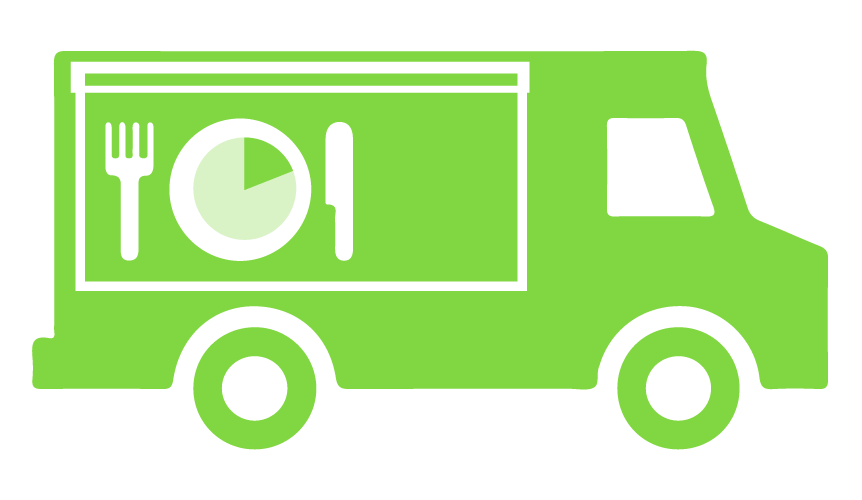
In 2013, 19% of Mexicans ate at a food truck at least once.
Agency De La Riva Group, November 2013
Botánicus
Refurbished truck sells flowers around Bogotá
Launched in Colombia in December 2013, Botánicus is a mobile greenhouse that sells flowers and plants for homes and offices. From Wednesday to Sunday, a restored bus drives around Bogotá’s popular business areas and tourist spots offering a selection of cacti, succulents, roses and vintage planters. Using the Botánicus site shoppers can place advance orders, and track both the route and business hours of the bus.
Nail Delivery
Manicure service comes to homes & offices in Brazil
In October 2013, Nail Delivery launched a manicure service in Brazil that goes directly to customers’ offices and homes. Clients book appointments by phone; a basic manicure costs BRL 30 (USD 13). Nail Delivery also offer services for special events such as a ‘girls’ night in’, weddings or corporate parties.
2. OK COMMUTER
Part of the (retail) journey.
In the bustling cities of South & Central America, residents are constantly on the go (check out our previous Trend Bulletin METRO MOBILITY, for more on this!). What’s more, these time-pressed consumers are determined to extract maximum value from the minutes they spend traveling.
Consumers are already shopping on their smartphones and browsing e-tail displays on train platforms. Now, they’ll embrace forward-looking brands that create unexpected combinations of transport and retail, and help them eradicate any remaining ‘dead time’ from their day.

Inhabitants of São Paulo, Mexico City, Buenos Aires, Bogotá and Lima face a typical commute time of 1 hour and 28 minutes.
Megacities & Infrastructure in Latin America - Inter-American Development Bank, March 2014
Los Paleteros
Mexican paletas via drive-thru
In January 2014, a branch of the Mexican paleta (“ice pop”) franchise, Los Paleteros launched a store that features a drive-thru service in the state of São Paulo.
Beauty Bazar
Beauty in Brazilian subways
In February 2014, Beauty Bazar launched beauty product vending machines at two subway stations in São Paulo, Luz and Paraíso in Brazil. Subway passengers can pick up nail polish, false nails, stickers and other items from the cash-only machines.
3. OFF=ON=OFF
Smartphone-toting consumers have rendered the boundaries between offline and online near invisible.
Consumers conditioned by the smartphone age now expect retail platforms to deliver the best of both worlds: the sociability and hands-on customer service of physical, and the convenience and cost benefits of e-tail.
This expectation will only intensify as the reach of broadband and 3G improves: allowing both for faster online experiences, and better integration of digital into physical spaces.
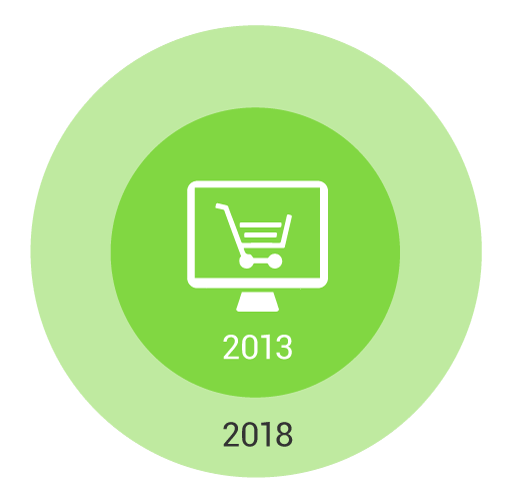
Online retail revenues in Brazil, Argentina and Mexico will more than double from USD 20 billion in 2013 to USD 47 billion in 2018.
Forrester, December 2013
iLoveMall
E-commerce ‘mall’ mimics physical shopping experience in Brazil
iLoveMall is a virtual shopping platform that mimics the traditional experience of visiting a mall with 3D visualizations of featured e-commerce stores. Participating retailers have virtual storefronts and aisles of products. Set to launch in Brazil later in 2014, the platform can host up to 720 stores.
Sodimac: Lector de Catálogos
App provides augmented reality renderings of Chilean catalog’s products
In March 2014, Chilean home improvement retailer Sodimac launched the Lector de Catálogos app. When used to scan a Sodimac catalog, the app displays 3D renderings of products via augmented reality.
Leica & Arco
Camera purchasable for Brazilians via Instagram
December 2013 saw camera brand Leica offer free prints to Brazilian customers purchasing the wifi-enabled Leica C model via Instagram. Buyers had to register with Brazilian e-commerce platform Arco, which connects PayPal and Instagram accounts, and could then buy the camera by typing ‘purchase’ under any of @LeicaBrasil’s Instagram photos. As well as the camera, customers also received a print of the photo they had commented on.
Sonae Sierra
Shopping malls use WhatsApp as customer service channel
In December 2013, Sonae Sierra Brazil, a shopping and leisure center developer, was the first in the industry to deploy WhatsApp as a communication platform and customer service tool. Since its debut at Shopping Metrópole in São Paulo, the service has spread to other locations. Shoppers can ask questions about facilities and receive retail recommendations from operators via the messaging app.
4. SOCIAL STORES
Selling a message.
Consumers are busy taking full advantage of the borderless online space, but this doesn’t mean that place – local concerns, traditions, communities and cultures – is forgotten.
Indeed, for many consumers, LOCAL LOVE is even more important than ever as a means to assert their own identities and mindsets amid the global village. That means consumers will direct love, attention and respect to retailers who engage in local social and environmental issues, and drive positive change.

95% of Mexican prosumers (highly knowledgeable, demanding, influential consumers) believe that companies have the same responsibility as governments to generate positive social impact.
Prosumer Report - Havas Worldwide, November 2013
Paris
Retailer rewards clothing donations at Santiago music festival
In March 2014, at Lollapalooza music festival in Santiago, the Chilean retailer Paris hosted a store where attendees could trade in old clothes for rewards. Donors received haircuts, customized t-shirts and portraits, in return for garments which were given to Debuenafe – a nonprofit that supports female entrepreneurs
Fenalco & Colombian Agency for Reintegration
Government re-integrates ex-FARC soldiers via store management program
The Colombian Agency for Reintegration helps ex-militants from FARC become self-employed, by opening convenience stores for commercial federation Fenalco’s brand 2×3. The project won the ‘Empreender Paz 2013’ award – given to businesses that contribute to the culture of peace. As of April 2014, it had opened 15 mini market stores around Colombia.
BRMalls & Social Solidarity Fund
Empty pop-up store designed to receive donations in São Paulo
In April 2013, BRMalls, in partnership with the Social Solidarity Fund of the State of São Paulo, opened The Empty Shop in São Paulo. The pop-up store was laid out like a normal store – with mannequins, cabinets and shelves – yet it was empty. It filled up as visitors’ donations of clothing were received throughout the day. At the end of each day, donations were removed and given away.
5. EDU-COMMERCE
Don't preach, teach.
Even in regions where there is an established middle class, there are always VIRGIN CONSUMERS who are moving into new income bands (from low to medium or even medium to high income) and trying out new products or services.
That means a multitude of consumers who yearn for guidance and advice when it comes to products and services. One future for customer service in the region, then? Retailers who don’t just preach about the benefits of their wares, but instead teach how to maximize value from them. In the process, they offer education on associated areas: from culinary skills to financial management and more.
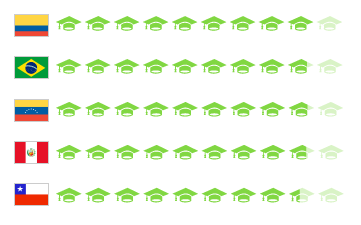
South & Central America includes six out of the top 10 countries where consumers say they are more willing to buy products and services from companies that support education:
Nielsen, September 2013
Colombia 90%, Brazil & Venezuela 88%, Peru 87%, Chile 83%.
Interbank
Lima bank includes social learning areas
In May 2013, design company IDEO finished a new retail concept for Peruvian bank Interbank, in Lima. Along with an SMS-based alert system that negates the need to wait in line for a teller, the facility has social areas where visitors can learn how to optimize their finances.
Magazine Luiza
Retailer provides classes and hosts events in São Paulo
In August 2013, home-furnishing and electric appliances retailer Magazine Luiza opened a shop in the low to middle-class area of Heliopolis, São Paulo – the first ‘virtual shop’ in that neighborhood. Consumers can buy products in a virtual catalog online, and be helped by shop assistants to decide and order online. Besides buying products, consumers can attend the shop to have culinary and computer classes, and attend tasting events organized by Magazine Luiza.
Ready to start RETELLING your RETAIL story?
Just a quick recap ;)
MOVING MERCHANTS: Listen to where consumers are – and go there!
OK COMMUTER: Offer new points of sale that capture the attention of consumers on-the-go.
OFF=ON=OFF: Weave the digital and physical together to create new kinds of retail experiences.
SOCIAL STORES: Drive positive change in local communities – think partnerships with consumers and nonprofits.
EDU-COMMERCE: Teach consumers about your offering and enhance desired skills and knowledge, too.

